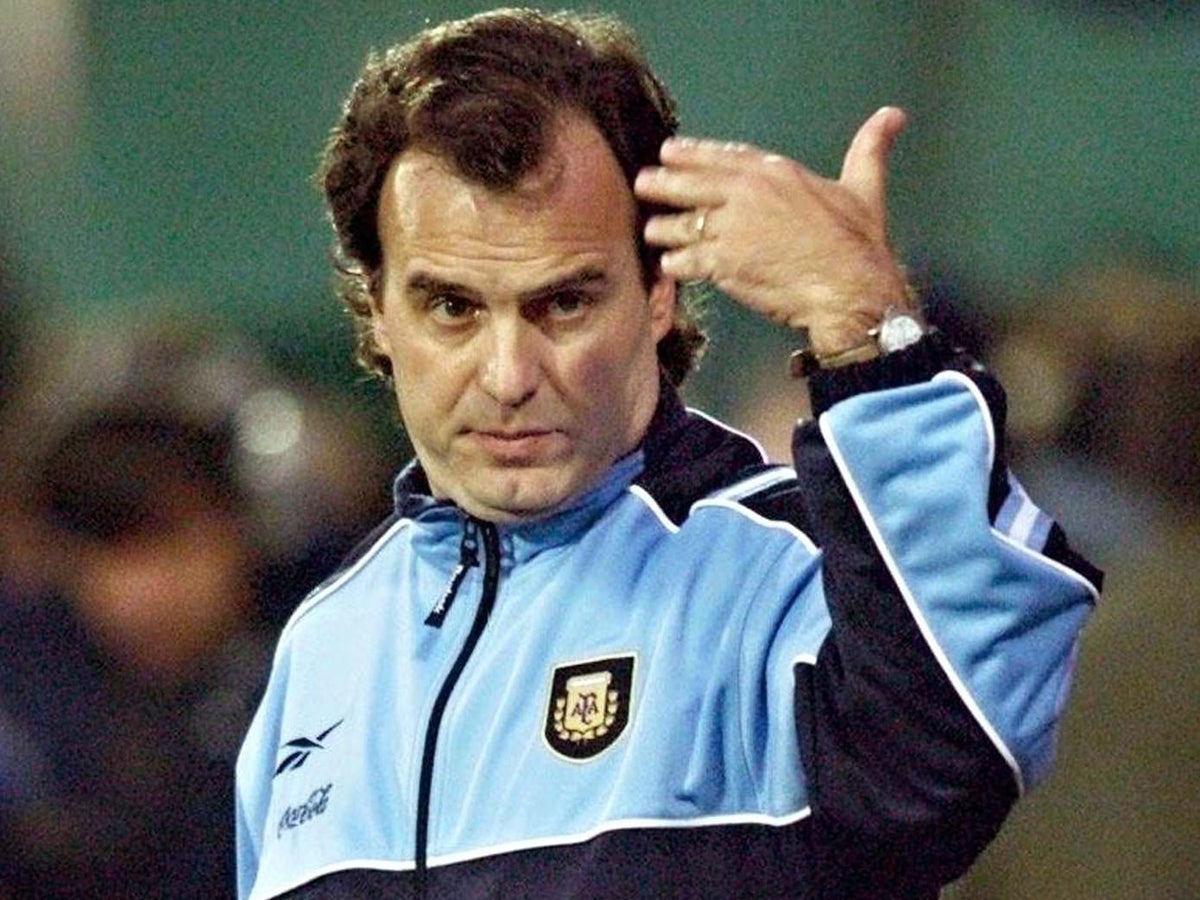The Visionary Madman Who Transformed Football
Introduction
Marcelo Bielsa, often referred to as "El Loco" (The Madman), is a figure who has left an indelible mark on the world of football. His unorthodox methods, intense passion, and unwavering principles have not only earned him the moniker but also inspired a deep devotion among players, fans, and fellow coaches. This exploration into Bielsa's life, career, and influence seeks to understand the man behind the myth and why he continues to be a revered figure in football circles worldwide.
Early Life and Career
Marcelo Alberto Bielsa Caldera was born on July 21, 1955, in Rosario, Argentina. Growing up in a family with strong connections to politics and law, Bielsa's choice to pursue football was unconventional. His early life in Rosario, a city with a rich footballing culture, played a significant role in shaping his future.
Bielsa’s playing career was modest. He played as a defender for Newell's Old Boys, a club that would later become pivotal in his coaching career. Realizing his limitations as a player, Bielsa transitioned to coaching at a young age. His early coaching stints included managing youth teams and lower division clubs in Argentina, where he began to develop his distinctive approach to the game.
Coaching Philosophy and Methods
Bielsa's coaching philosophy is characterized by its emphasis on attacking football, intense pressing, and meticulous preparation. He is known for his 3-3-1-3 formation, a system that requires high levels of fitness, discipline, and tactical awareness from his players.
Detailed Preparation: Bielsa is famous for his exhaustive preparation. He meticulously studies opponents, often watching hours of video footage to dissect their strategies and weaknesses. This attention to detail ensures that his teams are well-prepared for every match.
Innovative Training Methods: Bielsa’s training sessions are intense and innovative. He often uses unconventional drills to instill his footballing principles in players. These sessions are designed to simulate match conditions, ensuring that players are prepared for the demands of competitive play.
Emphasis on Youth Development: Bielsa has a keen eye for talent and a strong belief in developing young players. He has been instrumental in the growth of numerous young talents who have gone on to have successful careers. His time at Newell's Old Boys, where he promoted several youngsters to the first team, is a testament to this.
Philosophical Approach: Bielsa’s methods are deeply rooted in his philosophical views on football and life. He sees football as more than just a game; it is a way of expressing art and emotion. His ethical approach to management, including his honesty and integrity, sets him apart in a field often characterized by cutthroat competition.
Key Moments in Bielsa's Career
Newell's Old Boys (1990-1992): Bielsa's first major success came with Newell's Old Boys, where he led the team to two Argentine Primera División titles and a Copa Libertadores final. His tenure at Newell's is still remembered fondly by fans, who regard him as a club legend.
Argentina National Team (1998-2004): Bielsa's time with the Argentina national team was marked by highs and lows. He led the team to a gold medal at the 2004 Athens Olympics but faced criticism for their early exit at the 2002 FIFA World Cup. Despite mixed results, his tenure is often praised for the attractive style of play he implemented.
Chile National Team (2007-2011): Bielsa's impact on the Chilean national team was profound. He transformed the team into a competitive force, leading them to the 2010 World Cup and laying the groundwork for future successes, including Copa America victories in 2015 and 2016. His influence on Chilean football is still felt today.
Athletic Bilbao (2011-2013): At Athletic Bilbao, Bielsa led the team to the finals of both the UEFA Europa League and the Copa del Rey in the 2011-2012 season. Although they did not win either final, the team’s performances were widely praised, and Bielsa's tenure is remembered for the attractive and dynamic football the team played.
Leeds United (2018-2021): Bielsa's tenure at Leeds United is perhaps his most celebrated in recent years. He took over the team in the English Championship and, after narrowly missing out on promotion in his first season, led Leeds to the Premier League in 2020 after a 16-year absence. Bielsa's impact on Leeds was profound, not just in terms of results but also in the style of play and the unity he brought to the club.
Bielsa’s Influence on Modern Football
Bielsa's influence extends far beyond the teams he has managed. His innovative tactics and philosophical approach have inspired a generation of coaches. Notable managers such as Pep Guardiola, Mauricio Pochettino, and Diego Simeone have cited Bielsa as a major influence on their own coaching styles.
Pep Guardiola: Guardiola has often spoken about his admiration for Bielsa, considering him one of the best coaches in the world. Bielsa's emphasis on positional play and high pressing has clearly influenced Guardiola's approach to the game.
Mauricio Pochettino: Pochettino, who played under Bielsa at Newell's Old Boys, has adopted many of his mentor's principles. His teams are known for their high-intensity pressing and structured attacking play, hallmarks of Bielsa’s philosophy.
Diego Simeone: Although Simeone’s approach is more defensive, he has also acknowledged Bielsa’s influence, particularly in terms of preparation and tactical organization.
The Man Behind the Myth
Despite his nickname, Bielsa is known for his humility and simplicity. He lives a modest lifestyle, often shunning the trappings of fame and wealth that come with football management. This down-to-earth attitude has endeared him to fans and players alike.
Bielsa's press conferences and public statements are often characterized by their candor and depth. He is a thinker and a philosopher, always ready to delve into the intricacies of the game and life. This intellectual approach sets him apart from many of his peers and adds to his enigmatic persona.
Controversies and Criticisms
Bielsa's career has not been without controversy. His intense personality and uncompromising principles have sometimes led to conflicts with club management and players. His abrupt resignation from Lazio after just two days in 2016 is an example of his unpredictable nature.
Additionally, Bielsa's teams have sometimes struggled with consistency. While his methods can produce spectacular football, they can also lead to burnout and defensive vulnerabilities. Critics argue that his intense style is not sustainable over long periods.
Legacy and Devotion
Marcelo Bielsa's legacy in football is defined by the profound impact he has had on the teams he has managed and the coaches he has inspired. His devotion to the game, innovative tactics, and philosophical approach have earned him a unique place in football history.
Cult Following: Bielsa has developed a cult following among fans. His time at Leeds United, in particular, saw fans adopting his methods and ethos as their own. Murals, chants, and songs dedicated to Bielsa are common in Leeds, illustrating the deep connection he has forged with the fanbase.
Enduring Influence: Beyond the immediate impact on his teams, Bielsa's methods continue to influence modern football tactics. The principles he espouses—such as high pressing, positional play, and meticulous preparation—are now integral to the strategies of many top clubs and national teams.
Educational Impact: Bielsa is also known for his willingness to share his knowledge. He often conducts seminars and talks, providing insights into his methods and philosophies. This educational aspect of his career has contributed to his lasting influence on the game.
Conclusion
Marcelo Bielsa is more than just a football manager; he is a visionary and a philosopher whose impact on the sport transcends conventional success metrics. His innovative tactics, intense preparation, and ethical approach to management have inspired devotion among players, fans, and fellow coaches. Despite the controversies and criticisms, Bielsa's legacy in football is secure, marked by the deep respect and admiration he commands within the footballing community. As "El Loco," he continues to inspire devotion through his passion, principles, and unyielding love for the beautiful game.





/origin-imgresizer.eurosport.com/2020/10/03/2901390-59735808-2560-1440.jpg)